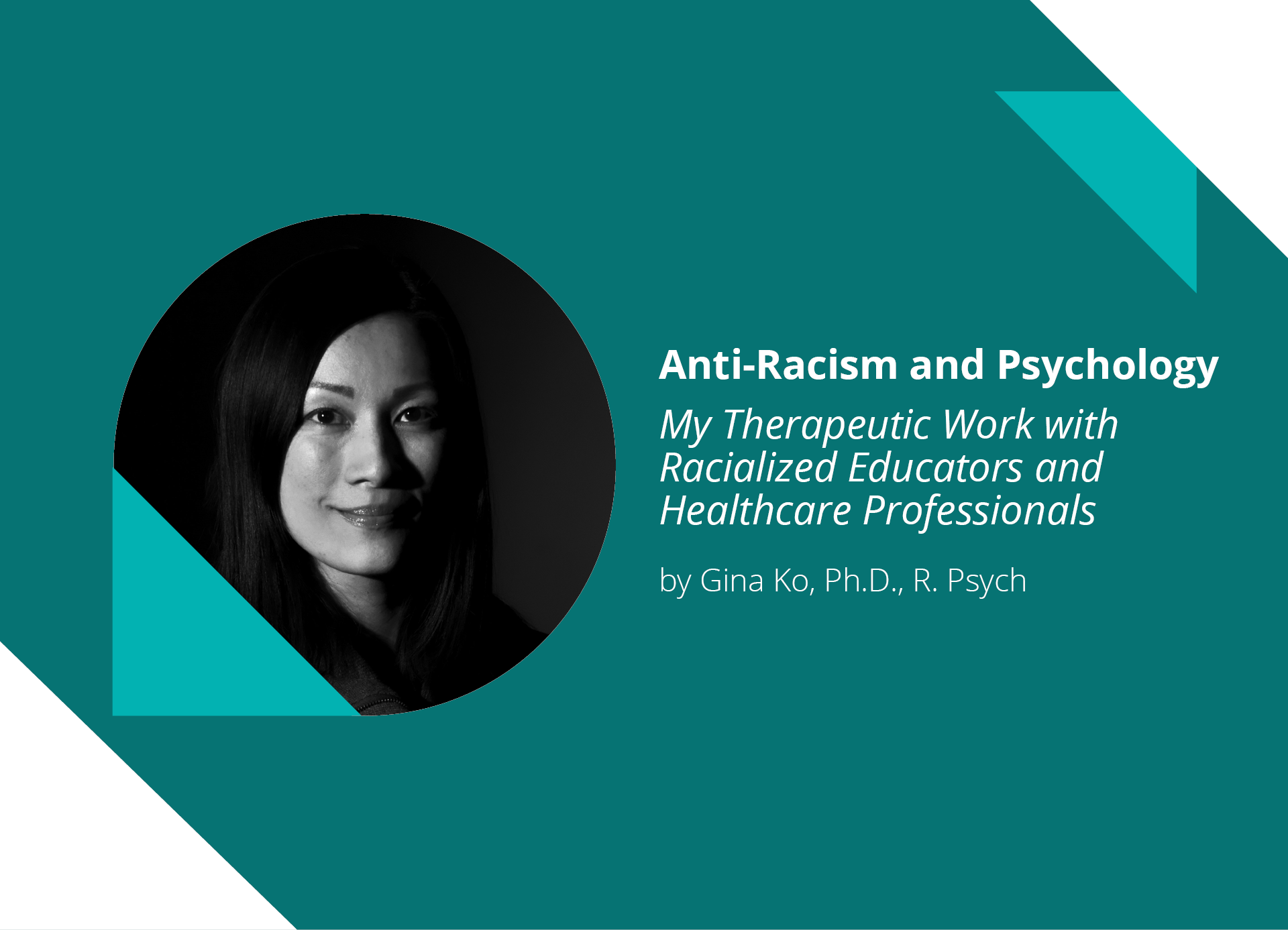
3 minute read
Anti-Racism and Psychology
My Therapeutic Work with Racialized Educators and Healthcare Professionals
By Gina Ko, Ph.D., R. Psych
As a registered psychologist in Alberta, I work with various racialized educators in primary, secondary, and post-secondary contexts. I also see patients who are healthcare professionals such as nurses, physiotherapists, occupational therapists, respiratory therapists, and physicians. I have heard from them, the challenges they face due in part to the pandemic, funding cutbacks, new systems, students and patients with mental health concerns (where such individuals are finding it challenging to access needed support), and a lack of resources to help them navigate and cope. For example, teachers have told me they face racism from administrators, parents, and learners. Teachers who are socially just, anti-oppressive, and lead an anti-racism initiative at school may notice the lack of support from the administration and colleagues. Parents would reach out to tell them to halt such activities as they think school is not a place for such learning.
I have heard from nurses from an Asian background that patients would refuse to have them care for them and even call them racial slurs. During the pandemic, the slurs were related to the virus. Some were told to go back to China (even though they were not from that country and not even Chinese). Such experiences may have individuals go on medical leave to take care of their physical and mental health and gather support from their family, physicians, and therapists. Such a decision could come with guilt, not feeling good enough, strong enough, and resilient enough. We often work on self-compassion, as they would not judge a loved one if they were on stress leave. They would be much kinder to them than they are to themselves.
It is unfair and unjust that racialized patients in fields that are highly needed in our society face such racism, discrimination, and powerlessness. Institutions must do more than performative ways to show they care about diversity, equity, and inclusion. How are they listening and taking action when racialized employees disclose they are harmed by racism? In therapy, we work on coping strategies, pivoting opportunities, and readiness to speak out. However, I need to be gentle and tentative when exploring action because there could be safety concerns and even the potential for ostracization, workplace incivility, financial anxiety, and job loss if they are not supported. Sometimes, I communicate that there are ways to live acts of resistance, such as seeking colleagues who may understand, trust, and support one another. Unfortunately, another way to cope is not to show how microaggressions are impacting them and to process them in therapy. When ready, they could seek other work opportunities in small ways, so they do not feel stuck and hopeless. I often offer value-centric work so they can gain self-awareness, reflection, and meaning. These patients have many strengths, resources, and unlimited potential. I am grateful for their trust in me to continue showing up for therapy and navigating toward hope.





